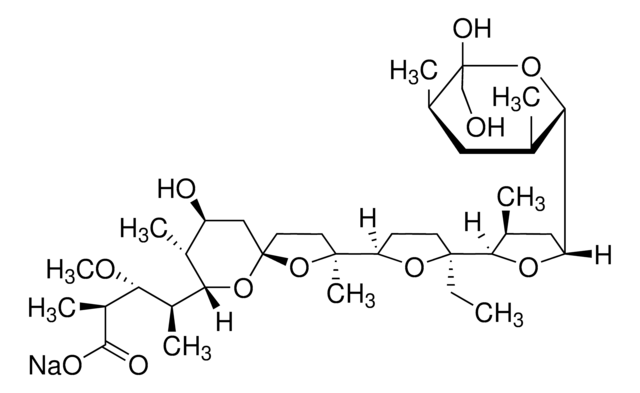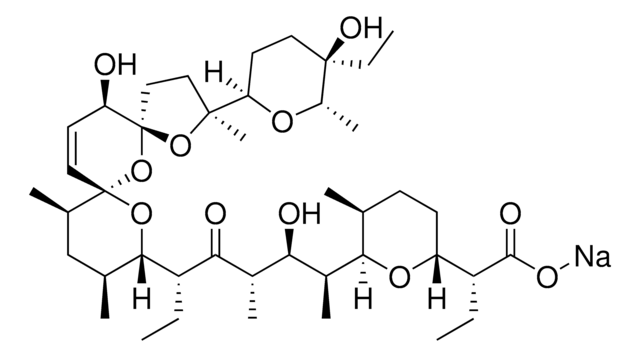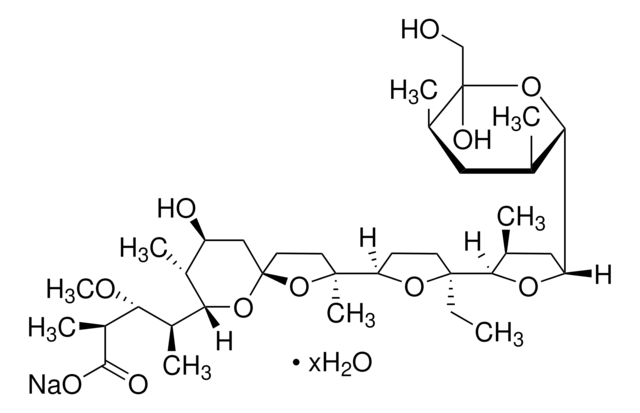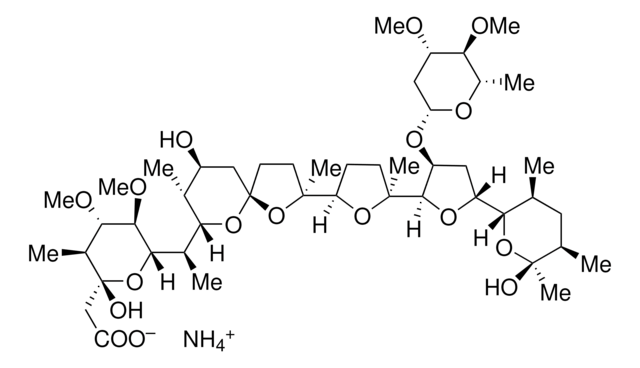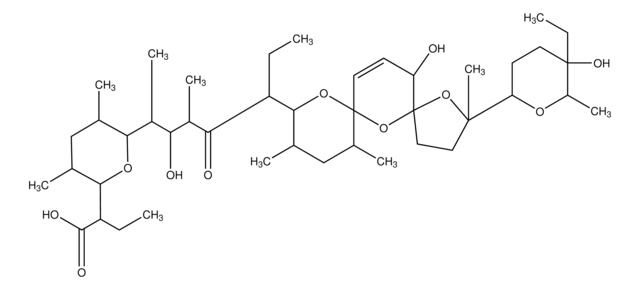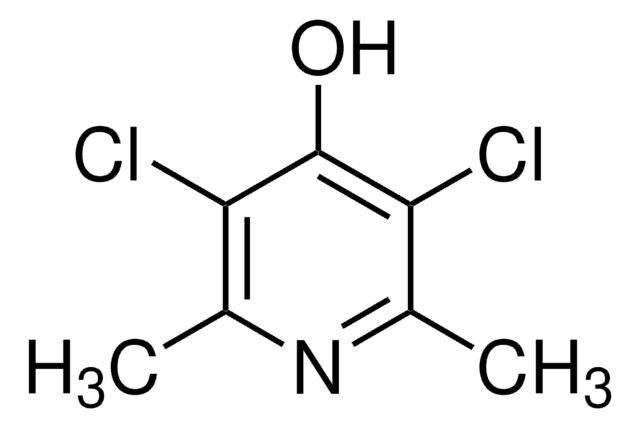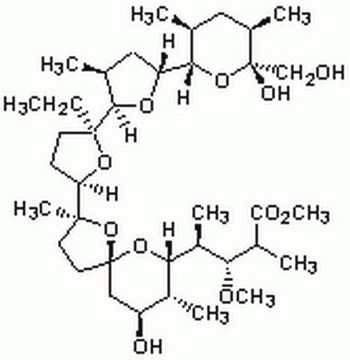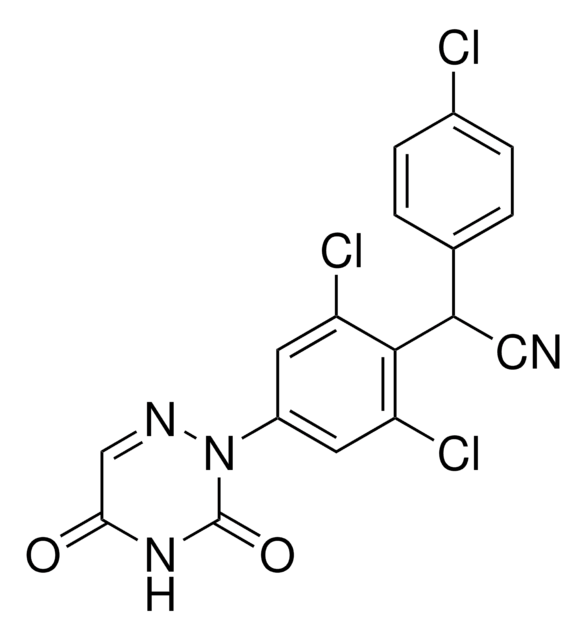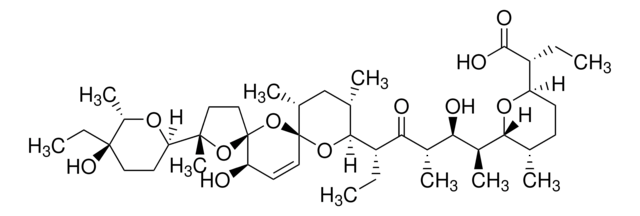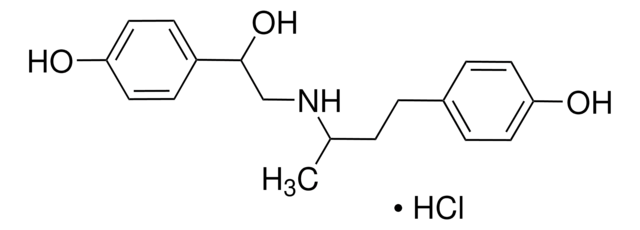46468
Monensin sodium salt monohydrate
VETRANAL®, analytical standard
About This Item
Productos recomendados
grade
analytical standard
Quality Level
product line
VETRANAL®
shelf life
limited shelf life, expiry date on the label
technique(s)
HPLC: suitable
gas chromatography (GC): suitable
application(s)
cleaning products
clinical
cosmetics
food and beverages
forensics and toxicology
personal care
pharmaceutical (small molecule)
format
neat
mode of action
cell membrane | interferes
storage temp.
2-8°C
SMILES string
O.[Na+].CC[C@]1(CC[C@@H](O1)[C@]2(C)CC[C@]3(C[C@H](O)[C@@H](C)[C@H](O3)[C@@H](C)[C@@H](OC)[C@H](C)C([O-])=O)O2)[C@@H]4O[C@@H](C[C@@H]4C)[C@H]5OC(O)(CO)[C@H](C)C[C@@H]5C
InChI
1S/C36H62O11.Na/c1-10-34(31-20(3)16-26(43-31)28-19(2)15-21(4)36(41,18-37)46-28)12-11-27(44-34)33(8)13-14-35(47-33)17-25(38)22(5)30(45-35)23(6)29(42-9)24(7)32(39)40;/h19-31,37-38,41H,10-18H2,1-9H3,(H,39,40);/q;+1/p-1/t19-,20-,21+,22+,23-,24-,25-,26+,27+,28-,29+,30-,31+,33-,34-,35+,36-;/m0./s1
InChI key
XOIQMTLWECTKJL-FBZUZRIGSA-M
¿Está buscando productos similares? Visita Guía de comparación de productos
General description
Application
Legal Information
signalword
Danger
hcodes
Hazard Classifications
Acute Tox. 2 Oral - Aquatic Chronic 2 - Eye Irrit. 2 - STOT RE 2
target_organs
Heart,muscle
Storage Class
6.1A - Combustible acute toxic Cat. 1 and 2 / very toxic hazardous materials
wgk_germany
WGK 3
flash_point_f
Not applicable
flash_point_c
Not applicable
ppe
Eyeshields, Faceshields, Gloves, type P2 (EN 143) respirator cartridges
Elija entre una de las versiones más recientes:
Certificados de análisis (COA)
¿No ve la versión correcta?
Si necesita una versión concreta, puede buscar un certificado específico por el número de lote.
¿Ya tiene este producto?
Encuentre la documentación para los productos que ha comprado recientemente en la Biblioteca de documentos.
Los clientes también vieron
Nuestro equipo de científicos tiene experiencia en todas las áreas de investigación: Ciencias de la vida, Ciencia de los materiales, Síntesis química, Cromatografía, Analítica y muchas otras.
Póngase en contacto con el Servicio técnico